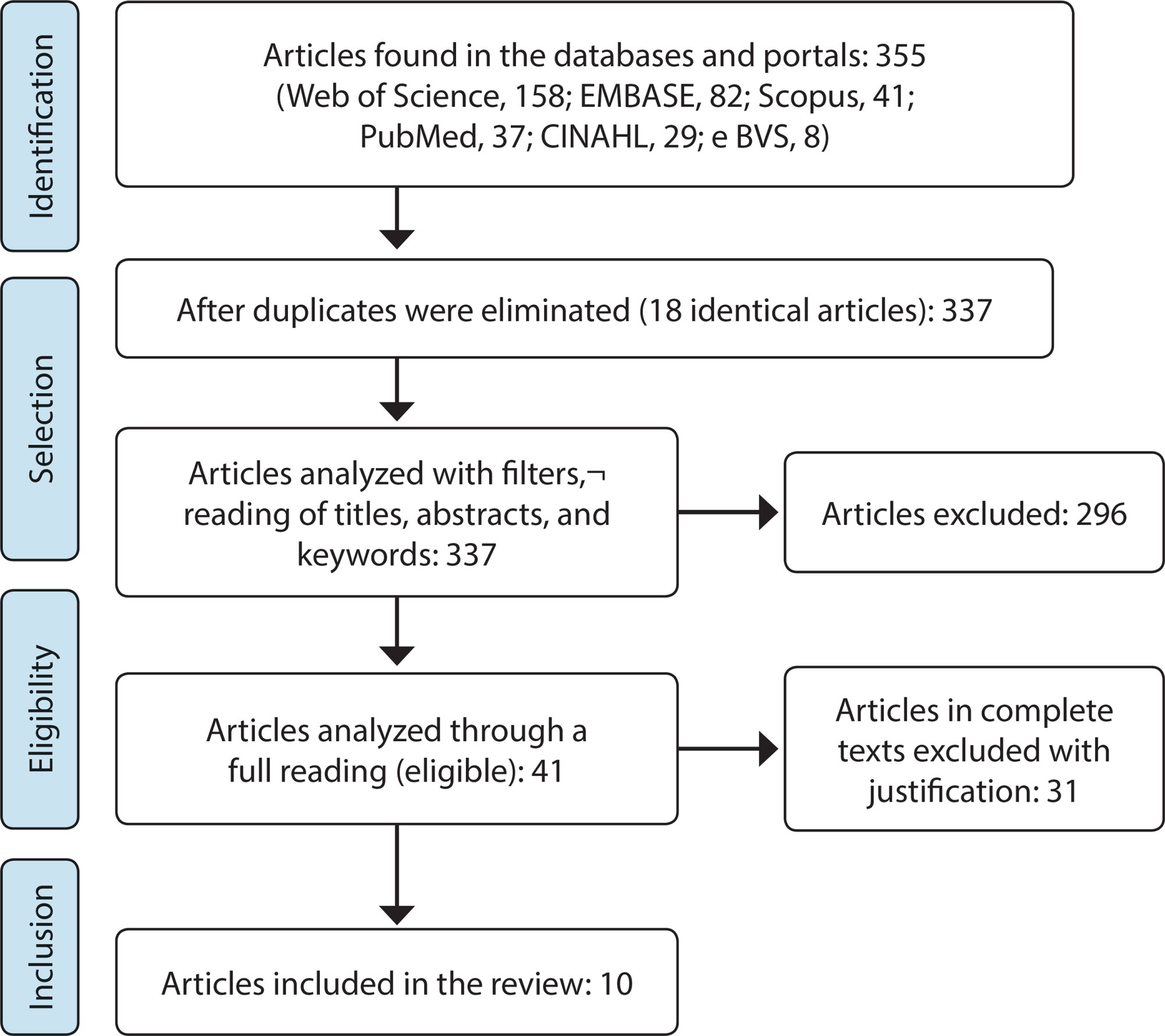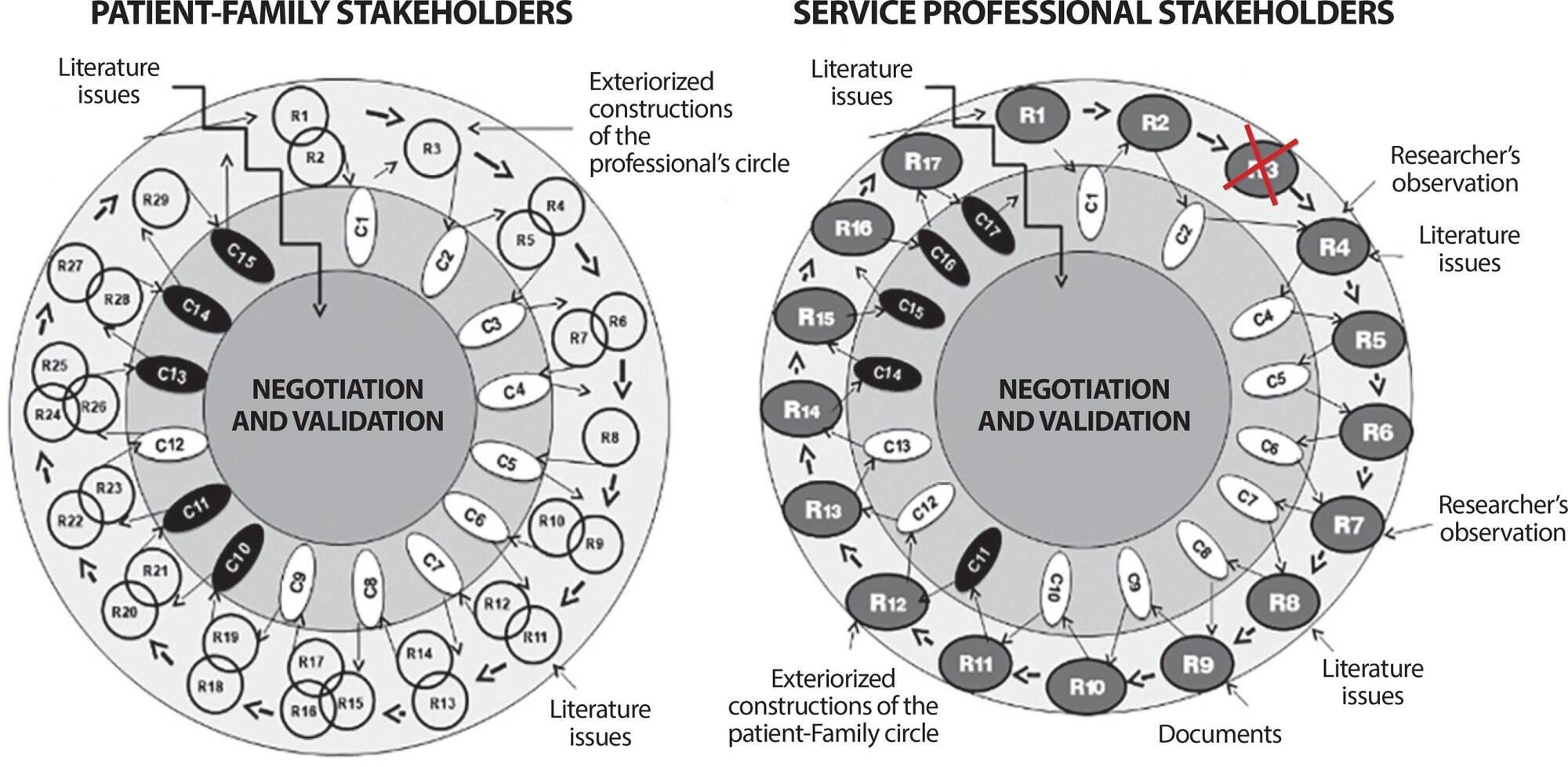-
ORIGINAL ARTICLE
Cooperative behavior and management of a patient care team in an oncohematology hospital service
Revista Brasileira de Enfermagem. 2021;74(4):e20201169
08-06-2021
Resumo
ORIGINAL ARTICLECooperative behavior and management of a patient care team in an oncohematology hospital service
Revista Brasileira de Enfermagem. 2021;74(4):e20201169
08-06-2021DOI 10.1590/0034-7167-2020-1169
Visualizações0INTRODUCTION The health work process presupposes social relationships, incorporating needs that encompass health professionals, managers and patients, which are determined by working conditions and human factors that influence the provision of services(). In hospitals, there are several conflicting situations that weaken interprofessional relationships. This process requires management’s attention, as the environment can cause dissatisfaction and […]Palavras-chave: Cooperative BehaviorHealth CommunicationInterprofessional RelationsOncology Service HospitalPatient Care TeamVer mais -
REVIEW
Pharmacological and non-pharmacological treatment of delirium in an oncological hospital service: an integrative review
Revista Brasileira de Enfermagem. 2021;74(1):e20200200
03-24-2021
Resumo
REVIEWPharmacological and non-pharmacological treatment of delirium in an oncological hospital service: an integrative review
Revista Brasileira de Enfermagem. 2021;74(1):e20200200
03-24-2021DOI 10.1590/0034-7167-2020-0200
Visualizações0Ver maisABSTRACT
Objectives:
to analyze the production of scientific articles about the pharmacological and non-pharmacological management of delirium in adult hospitalized cancer patients.
Methods:
integrative review whose sample was obtained from the databases Scopus, Cumulative Index to Nursing and Allied Health Literature, EMBASE, Web of Science, and from the portals Biblioteca Virtual em Saúde, and PubMed.
Results:
among the ten studies analyzed, 80% described exclusively the pharmacological management, especially with regard to the use of haloperidol; 20% mentioned, superficially, non-pharmacological interventions/actions (educational actions) associated to pharmacological management, and adjusting them could result in the diminution and control of psychomotor agitation, contributing for the safety and comfort of the patient.
Conclusions:
there are few studies addressing pharmacological and non-pharmacological interventions/actions to manage delirium. As a result, it is essential to develop studies focused on increasing and advancing scientific knowledge with regard to the theme, especially in the national context.

-
ORIGINAL ARTICLE
Operation of a hospital palliative care service: a fourth-generation evaluation
Revista Brasileira de Enfermagem. 2019;72(2):383-390
04-18-2019
Resumo
ORIGINAL ARTICLEOperation of a hospital palliative care service: a fourth-generation evaluation
Revista Brasileira de Enfermagem. 2019;72(2):383-390
04-18-2019DOI 10.1590/0034-7167-2017-0848
Visualizações0ABSTRACT
Objective:
Qualitatively evaluate the operation of a palliative care service in oncology.
Methodology:
Qualitative study conducted in a service in southern Brazil based on a fourth generation evaluation. Between September 2014 and June 2015, 460 hours of operation were observed, and 45 semi-structured interviews and five negotiation meetings were conducted; data were analyzed using the constant comparative method.
Results:
Potential services are: provision of outpatient palliative care, home and inpatient care provided by a multidisciplinary and support team, meeting the patient’s biological, psychological, social and spiritual needs. Study limitations: ineffective communication between clinical and surgical oncology and palliative care sectors, lack of specialized training for professionals and in interpersonal relationship issues among team members.
Final Consideration:
For palliative care progress in the service, some arrangements are required to enhance integrality of care.
Palavras-chave: Health Services EvaluationHealth Services ResearchHospice CareOncology Service HospitalPalliative CareVer mais



